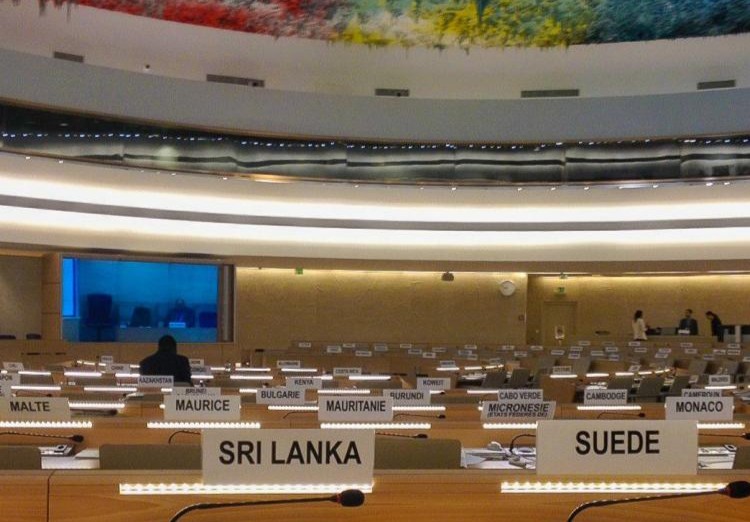Sri Lanka’s Ambassador Defends Sovereignty at UNHRC, Criticizes External Accountability Mechanism.
Sri Lanka Brief/ 08 October 2025) Sri Lanka has formally rejected draft resolution HRC.60/L.1/Rev.1 at the 60th Session of the United Nations Human Rights Council (UNHRC), citing concerns over external interference and reaffirming its commitment to nationally driven reconciliation and human rights initiatives.
Delivering the statement on behalf of Sri Lanka, the country’s Ambassador emphasized that the government had engaged in the resolution’s drafting process with openness and constructive dialogue. While expressing appreciation for the core group’s engagement and the positive contributions of several delegations, the Ambassador noted with regret that consensus could not be reached on key concerns raised by Sri Lanka.
At the heart of Sri Lanka’s objection is the continued reference to resolution 51/1 of 2022, which established the OHCHR’s external evidence-gathering mechanism known as the “Sri Lanka Accountability Project.” The Ambassador described this mechanism as an “unprecedented and ad hoc expansion” of the Council’s mandate, questioning its transparency, budget, and tangible impact after four years of operation.
“The extension of this mandate will only serve the interests of elements with vested agendas seeking to divide and polarize communities in Sri Lanka,” the Ambassador warned, adding that such actions undermine the government’s efforts to promote unity and reconciliation.
The statement reiterated Sri Lanka’s preference for domestic solutions, highlighting ongoing national initiatives such as the strengthening of the Offices on Missing Persons and Reparations, the Office for National Unity and Reconciliation, and the establishment of a truth and reconciliation commission and an independent Public Prosecutor’s Office.
Referring to the High Commissioner for Human Rights’ visit to Sri Lanka in June, the Ambassador noted that the Commissioner had witnessed a “momentum of change” and “genuine openness” from the government. The High Commissioner’s report also acknowledged a historic opportunity for transformative reforms in the country.
“Sri Lanka must be allowed to seize this opportunity to advance the rights of its own people through domestic processes,” the Ambassador concluded, firmly rejecting coercive international action and the resolution presented to the Council.
The statement underscores Sri Lanka’s ongoing tension with international oversight mechanisms and its insistence on sovereignty and locally led reconciliation efforts.
